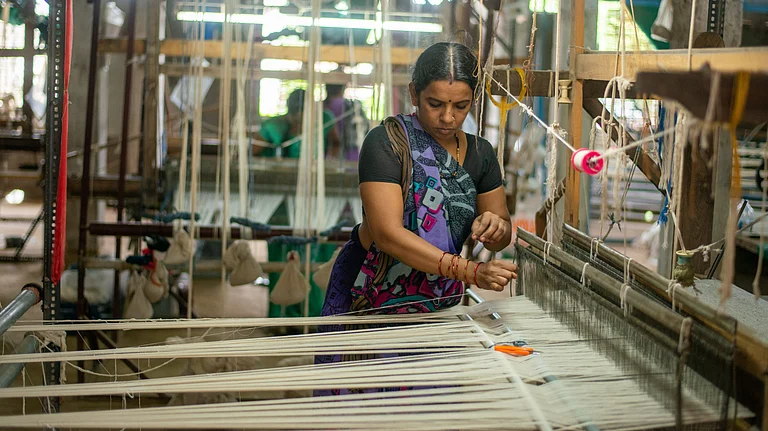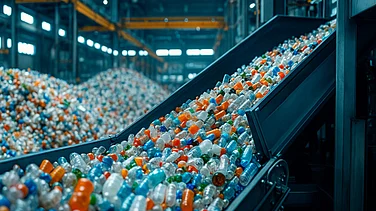As India progresses under the "Make in India" initiative, there is an increasing emphasis on MSMEs (Micro, Small & Medium Enterprises), which form the backbone of the economy. These enterprises play a pivotal role, contributing approximately 33 per cent to India's manufacturing output and nearly 28 per cent to the overall GDP, according to a recent report.
Globally, MSMEs are emerging as the driving force behind economic growth, job creation, and innovation. They employ up to 70 per cent of the global workforce and contribute around 50 per cent to the world’s GDP. In India, MSMEs alone account for nearly 30 per cent of the GDP and provide employment to around 110 million people. Looking ahead, MSMEs will play an increasingly critical role in promoting sustainable practices, paving the way for long-term growth and resilience.
In recent years, the MSME sector has become one of the fastest-growing areas of the Indian economy, offering a wealth of opportunities in both rural and urban regions, significantly boosting employment. Over the past six years, job creation in this sector has grown at an average annual rate of 110 per cent. According to the Udyam portal, by December 2022, approximately 12.8 million MSMEs were registered, employing 93.1 million people, including 21.8 million women.
The government has also introduced several initiatives to promote Research and Development (R&D) in the MSME sector. While domestic efforts are underway, there is a pressing need for greater global collaboration in R&D. Such efforts will drive the creation of more innovative, differentiated products, leveraging advancements in technology, product design, optimised manufacturing processes, and business models.
The dire need for sustainability within MSMEs is also another topic that needs to be addressed. The major reason that is pushing MSMEs to take a stand and choose sustainability is the increasing customer awareness about climate change. Now that consumers are exploring more environmentally friendly products, authorities have responded by imposing strict laws that compel small enterprises to execute eco-friendly methods of operation. These regulations are part of a broader global shift, where sustainability is taking centre stage in supply chains.
Established companies are now looking for collaborations with partners who are aligned with their ideals, resulting in an impact that affects the entire business environment. Therefore, small and medium-sized enterprises that align with the latest trends are most likely to discover opportunities to grow their reputation as a brand and successfully cushion themselves against potential risks.
Implementing the Environment, Social, and Governance (ESG) framework, alongside the nine principles outlined in the National Guidelines for Responsible Business Conduct (NGRBC) by the Ministry of Corporate Affairs, can serve as an initial step for the sector. Embracing sustainability is essential for aligning with stakeholder expectations, lowering expenses while boosting efficiency, improving brand image, increasing business value, and positively influencing both the environment and society.
Another offering should be of providing both financial and non-financial incentives that can help encourage MSMEs to embrace sustainability. Governments and investors can provide financial support such as tax breaks, grants, subsidies, or low-interest loans to help MSMEs invest in sustainable technologies. For example, according to media reports, SIDBI's "Greening MSME" initiative offers financial assistance of up to Rs 20 crores to promote energy-efficient and environmentally friendly technologies. Additionally, non-financial incentives like awards and public recognition can motivate businesses to adopt greener practices.
Sustainability plays a pivotal role in elevating brand recognition and earning customer trust; according to poll conducted by an independent consulting firm, indicated that 8 out of 10 customers are willing to spend extra money for sustainably produced or sourced goods and products. This clearly illustrates the fact that MSMEs that display a commitment to sustainability may draw in eco-conscious clientele.
The implementation of sustainable practices requires an integrated approach, and that commences with energy efficiency. MSMEs can achieve significant cost savings and environmental benefits by focusing on reducing energy consumption.
Regular equipment maintenance is also important in this process, as it fully ensures that machines operate at peak efficiency and consume less energy. Plus, embracing energy-efficient technologies empowers small businesses to cut down on their energy consumption without sacrificing productivity.
Waste management is another crucial area where MSMEs can have an immense effect. By emphasising reduction, reuse, and recycling as key business objectives, businesses can significantly lower operational costs while mitigating environmental harm. With an ever-evolved circular economy concept pushing this goal, many Indian MSMEs are already turning waste into valuable products—for example, transforming plastic into construction materials—showing there's innovation potential within such frameworks.
Technology can play a central role in driving sustainable practices for MSMEs by providing digital tools that bolster the monitoring of energy use, advancing asset use, and distinguishing regions for enhancement. By integrating these tools, MSMEs can enhance their operational efficiency and significantly reduce their environmental impact. For instance, IoT technology can revolutionise garbage collection through real-time tracking, guaranteeing more viable and effective squander management processes.
Boosting the sustainability of MSMEs is a win-win situation for everyone involved. By combining eco-friendly practices, these businesses can enhance their competitiveness and profitability. Governments, industries, and financial institutions must join forces and construct a supportive framework that enables MSMEs to adopt sustainable methods. By joining forces, these small enterprises can emerge as dynamic catalysts of economic growth and environmental responsibility, igniting transformative changes across various sectors and communities.


























